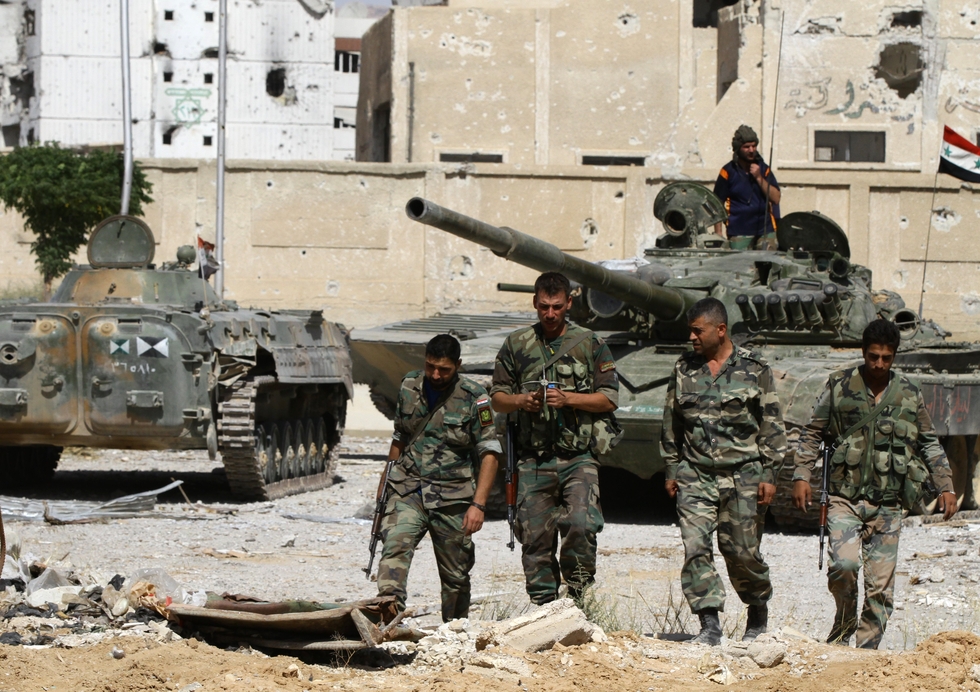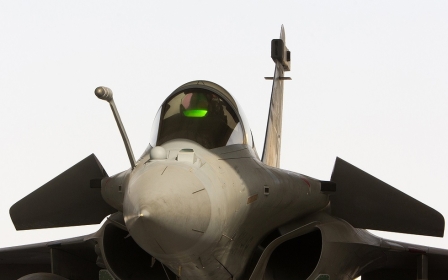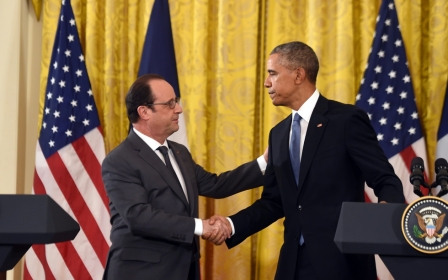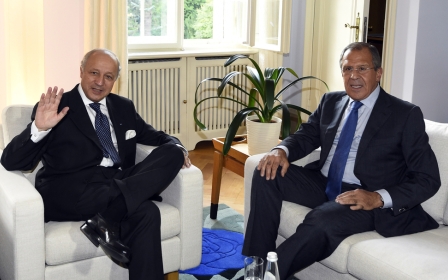French foreign minister: Syrian army could join anti-IS coalition

French Foreign Minister Laurent Fabius said Friday he could envisage Syrian regime troops taking part in the fight to crush the Islamic State (IS) militants that claimed responsibility for the Paris attacks.
In order to fight IS, "there must be two measures: bombings... and ground troops who cannot be ours, but who should be of the (opposition) Free Syrian Army, Sunni Arab forces, and why not regime forces too," Fabius told RTL radio.
Fabius later clarified his position, telling AFP he meant that Syrian government troops could take part in the fight against IS after a change of government.
It could happen "within the context of a political transition - and only in this context," he said.
The principal target of military efforts remains Raqqa, the Syrian city that is the stronghold of IS, Fabius said. Russian and French jets have targeted the town in recent days.
"For us it is one of the main military targets, even the main one, because it is the nerve centre of Daesh, and the attacks against France were planned from there," Fabius said, using another name for IS.
French President Francois Hollande and Russian leader Vladimir Putin agreed on Thursday to coordinate strikes against IS, but differences over Syria's future hampered efforts to bring Russia into a wider alliance to fight the militants.
Putin indicated France and Russia would swap data to help identify IS targets in Syria, as opposed to other groups opposed to the country's leader, Bashar al-Assad.
The two countries agreed to "exchange information about which territories are occupied by the healthy part of the opposition rather than terrorists, and will avoid targeting them with our airstrikes," Putin said.
"The strikes against Daesh (IS) will be intensified and be the object of coordination," Hollande said at a press conference after their 90-minute meeting at the Kremlin.
The agreement to focus on IS targets was the most concrete progress from the final leg of Hollande's marathon push to weld together a broad alliance to crush IS after the 13 November attacks in Paris.
But the French leader failed to gain any pledge from Putin over helping the US-led coalition which is targeting IS.
Hollande reiterated that Assad, a key Moscow ally, "has no place in the future of Syria".
Russia has been waging a bombing campaign in Syria since 30 September at Assad's request while a rival US-led coalition is carrying out strikes against IS.
Although both Russia and the US coalition oppose IS, Washington and its allies say Moscow is primarily targeting rebels fighting Assad's rule rather than IS.
Prior to his visit to Moscow, Hollande gained support from Britain, whose premier David Cameron set out his case on Thursday for air strikes against IS in Syria.
Cameron said Britain should not "wait until an attack takes place here" before acting, saying it was "morally" unacceptable to be "content with outsourcing our security to our allies".
A vote is expected to be held early next week and MPs look set to approve the move, meaning the first British air strikes on Syria could come within days.
Cameron has also offered France the use of a British air base in Cyprus for flying missions against the jihadists.
In Berlin, Defence Minister Ursula von der Leyen on Thursday said Germany could offer France Tornado reconnaissance jets, a naval frigate, satellite images and aerial refuelling to back the fight against IS.
"France was struck to the bone by the horrific attacks by IS but we know that this inhumane rage can hit us or other societies at any time too," Von der Leyen said.
Germany on Wednesday said it would send 650 soldiers to Mali to provide some relief to French forces fighting militants there.
In contrast, Italian Prime Minister Matteo Renzi, in talks with Hollande in Paris, offered only vague support for "a coalition of greater and greater strength" able to destroy IS.
France last week invoked a clause requiring EU member states to provide military assistance after the Paris attacks.
Hollande also received what was perceived to be a cool response from US President Barack Obama when he flew to Washington on Tuesday, with the US reluctant to step up military action in Syria without a clear strategy or political track in place.
New MEE newsletter: Jerusalem Dispatch
Sign up to get the latest insights and analysis on Israel-Palestine, alongside Turkey Unpacked and other MEE newsletters
Middle East Eye delivers independent and unrivalled coverage and analysis of the Middle East, North Africa and beyond. To learn more about republishing this content and the associated fees, please fill out this form. More about MEE can be found here.




